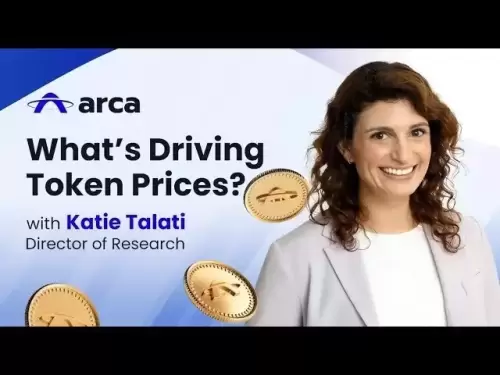-
 Bitcoin
Bitcoin $107,177.4639
-1.14% -
 Ethereum
Ethereum $2,491.2037
-0.61% -
 Tether USDt
Tether USDt $1.0002
0.01% -
 XRP
XRP $2.2429
1.26% -
 BNB
BNB $657.3356
0.28% -
 Solana
Solana $155.4695
1.22% -
 USDC
USDC $0.9999
0.00% -
 TRON
TRON $0.2807
1.56% -
 Dogecoin
Dogecoin $0.1651
-2.72% -
 Cardano
Cardano $0.5729
-1.27% -
 Hyperliquid
Hyperliquid $39.6884
-0.35% -
 Bitcoin Cash
Bitcoin Cash $507.4439
0.67% -
 Sui
Sui $2.7830
-4.69% -
 Chainlink
Chainlink $13.4283
-2.75% -
 UNUS SED LEO
UNUS SED LEO $9.0352
-0.48% -
 Avalanche
Avalanche $17.9622
-4.71% -
 Stellar
Stellar $0.2388
-1.01% -
 Toncoin
Toncoin $2.9152
-0.08% -
 Shiba Inu
Shiba Inu $0.0...01143
-4.04% -
 Litecoin
Litecoin $86.1768
-2.26% -
 Hedera
Hedera $0.1501
-1.98% -
 Monero
Monero $325.6175
4.22% -
 Polkadot
Polkadot $3.4095
-4.60% -
 Dai
Dai $1.0000
0.01% -
 Bitget Token
Bitget Token $4.5457
-1.85% -
 Ethena USDe
Ethena USDe $1.0002
-0.01% -
 Uniswap
Uniswap $7.1505
-3.76% -
 Aave
Aave $275.8099
-0.99% -
 Pepe
Pepe $0.0...09777
-6.00% -
 Pi
Pi $0.5071
-5.03%
What is decentralized finance? How does DeFi change the traditional financial service model?
DeFi uses blockchain to create an open, transparent financial system without intermediaries, democratizing finance and enhancing inclusion via internet access.
May 07, 2025 at 01:22 am
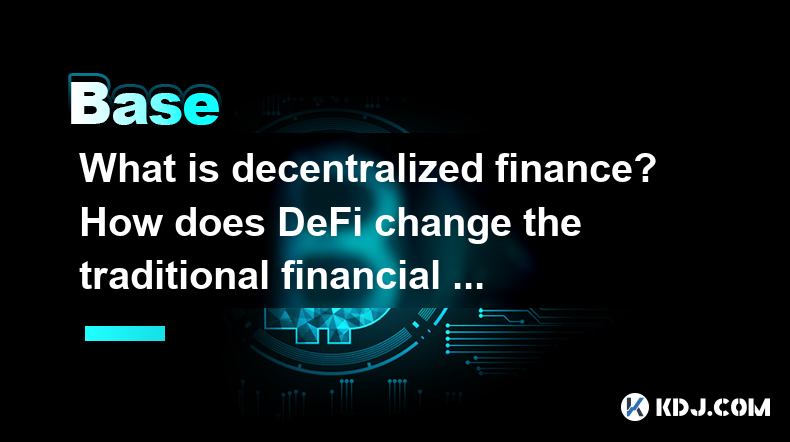
Decentralized Finance, commonly known as DeFi, represents a revolutionary shift in the financial sector by leveraging blockchain technology to create a financial system that is open, transparent, and operates without traditional intermediaries such as banks or brokerages. At its core, DeFi aims to democratize finance by allowing anyone with an internet connection to access financial services, thereby reducing the barriers to entry that exist in traditional finance.
The Core Principles of DeFi
The foundation of DeFi rests on several key principles that distinguish it from traditional finance. Decentralization is the most fundamental, meaning that no single entity has control over the network. Instead, transactions and services are managed by a network of computers running smart contracts, which are self-executing contracts with the terms directly written into code. Transparency is another critical aspect, as all transactions are recorded on a public blockchain, allowing anyone to audit the system. Interoperability enables different DeFi protocols to work together, creating a seamless ecosystem of financial services. Finally, Accessibility ensures that anyone can participate without needing to go through a centralized institution.
How DeFi Changes the Traditional Financial Service Model
DeFi fundamentally alters the way financial services are provided by removing the need for intermediaries. In traditional finance, banks and other financial institutions act as middlemen, charging fees for their services and often requiring extensive paperwork and identity verification. In DeFi, smart contracts automate these processes, reducing costs and increasing efficiency. For instance, lending and borrowing in DeFi are facilitated through decentralized platforms where users can lend out their cryptocurrency to earn interest or borrow against their assets without needing a bank's approval.
Moreover, DeFi introduces new financial instruments that were previously unavailable or difficult to access in traditional finance. For example, yield farming allows users to earn returns by providing liquidity to DeFi platforms. Decentralized exchanges (DEXs) enable users to trade cryptocurrencies directly with one another, bypassing the need for a centralized exchange. These innovations not only increase the variety of financial products available but also empower users to take control of their financial decisions.
The Impact of DeFi on Financial Inclusion
One of the most significant impacts of DeFi is its potential to increase financial inclusion. Traditional financial systems often exclude individuals in developing countries or those without access to banking services. DeFi platforms, accessible via smartphone and the internet, can reach these underserved populations, providing them with tools to save, invest, and borrow. This democratization of finance can have profound effects on global economic development by empowering more people to participate in the financial system.
Challenges and Risks in DeFi
Despite its many benefits, DeFi is not without challenges and risks. Security is a major concern, as the smart contracts that underpin DeFi are vulnerable to hacks and exploits. Users must be vigilant and conduct thorough research before participating in any DeFi platform. Regulatory uncertainty also poses a risk, as governments and financial regulators are still grappling with how to oversee this new sector. Additionally, the complexity of DeFi products can be daunting for newcomers, potentially leading to misunderstandings and financial losses.
The Role of Stablecoins in DeFi
Stablecoins play a crucial role in the DeFi ecosystem by providing a bridge between traditional fiat currencies and cryptocurrencies. These digital assets are pegged to the value of a stable asset, such as the US dollar, to minimize volatility. In DeFi, stablecoins are used as a medium of exchange, a unit of account, and a store of value. They enable users to engage in financial activities without the price fluctuations associated with other cryptocurrencies, making them an essential component of the DeFi landscape.
DeFi and Traditional Financial Institutions
The rise of DeFi has not gone unnoticed by traditional financial institutions. Many banks and financial service providers are exploring ways to integrate blockchain technology and DeFi principles into their operations. Some are developing their own blockchain-based solutions, while others are partnering with existing DeFi platforms to offer new services to their customers. This convergence of traditional finance and DeFi could lead to a more hybrid financial system, where the benefits of both worlds are combined to provide better services to consumers.
Frequently Asked Questions
Q: How can I start using DeFi platforms?
A: To start using DeFi platforms, you'll need a cryptocurrency wallet that supports DeFi interactions, such as MetaMask or Trust Wallet. Here's how you can get started:
- Download and install a compatible wallet on your device.
- Fund your wallet with cryptocurrency, typically Ethereum (ETH) or a stablecoin like USDC.
- Connect your wallet to a DeFi platform, such as Uniswap for trading or Aave for lending and borrowing.
- Follow the platform's instructions to engage in various DeFi activities, such as swapping tokens, providing liquidity, or taking out loans.
Q: Are there any fees associated with using DeFi platforms?
A: Yes, DeFi platforms typically charge fees for their services. These can include transaction fees for executing smart contracts on the blockchain, as well as platform-specific fees for using their services. The exact fees vary depending on the platform and the type of activity you're engaging in.
Q: How can I ensure the security of my assets in DeFi?
A: Ensuring the security of your assets in DeFi involves several steps:
- Use reputable and audited DeFi platforms to minimize the risk of smart contract vulnerabilities.
- Enable two-factor authentication (2FA) on your cryptocurrency wallet to add an extra layer of security.
- Never share your private keys or seed phrases with anyone, as these are used to access your wallet.
- Regularly update your wallet software and DeFi platform applications to protect against known vulnerabilities.
- Be cautious of phishing attempts and only interact with official websites and applications.
Q: Can I use DeFi if I live in a country with strict financial regulations?
A: The regulatory environment for DeFi varies by country, and some jurisdictions have stricter rules than others. While DeFi is designed to be decentralized and accessible, you should research the legal implications of using DeFi in your country. Some users in heavily regulated areas use VPNs to access DeFi platforms, but this comes with its own set of risks and legal considerations. Always ensure you comply with local laws and regulations when engaging with DeFi.
Disclaimer:info@kdj.com
The information provided is not trading advice. kdj.com does not assume any responsibility for any investments made based on the information provided in this article. Cryptocurrencies are highly volatile and it is highly recommended that you invest with caution after thorough research!
If you believe that the content used on this website infringes your copyright, please contact us immediately (info@kdj.com) and we will delete it promptly.
- Ruvi AI: Is This Token Gem Delivering Real ROI?
- 2025-07-01 06:30:11
- Bitcoin Price, Robinhood, & BTC Momentum: What's the Deal?
- 2025-07-01 06:30:11
- PNG Membership Soars to Record High: A Deep Dive into Growth and What It Means
- 2025-07-01 06:50:11
- Bitcoin's Breakout to $110K: What's the Real Deal, New York?
- 2025-07-01 06:50:11
- Valhalla Beckons: Norse Mythology Meets Blockchain Gaming
- 2025-07-01 07:10:11
- Valhalla Beckons: Norse Mythology Meets Blockchain Gaming
- 2025-07-01 06:55:12
Related knowledge
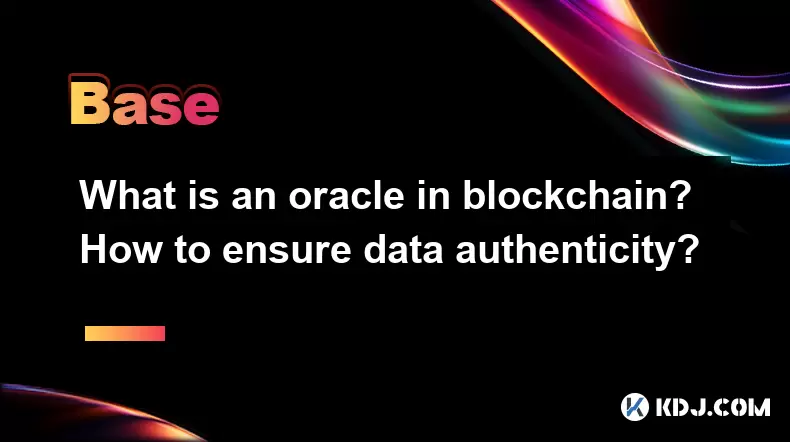
What is an oracle in blockchain? How to ensure data authenticity?
Jun 19,2025 at 08:49pm
Understanding the Role of an Oracle in BlockchainIn the context of blockchain technology, an oracle serves as a bridge between the blockchain and external data sources. While blockchains are inherently secure and decentralized, they cannot access real-world information on their own. Oracles enable smart contracts to interact with off-chain data such as ...
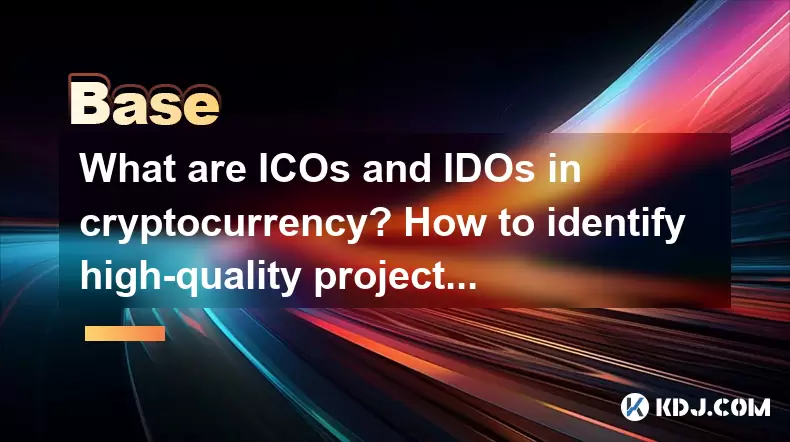
What are ICOs and IDOs in cryptocurrency? How to identify high-quality projects?
Jun 22,2025 at 11:49am
Understanding ICOs in CryptocurrencyInitial Coin Offerings (ICOs) are fundraising mechanisms used by cryptocurrency startups to raise capital for their projects. In an ICO, a company creates and sells its own tokens to investors in exchange for established cryptocurrencies like Bitcoin or Ethereum. The process typically involves the release of a whitepa...
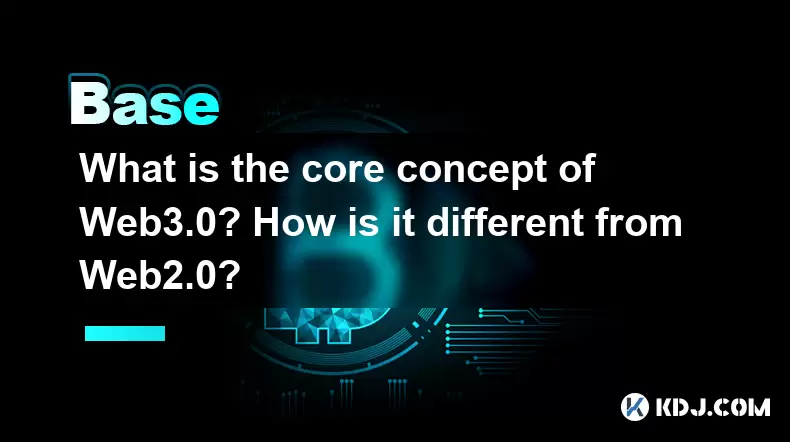
What is the core concept of Web3.0? How is it different from Web2.0?
Jun 21,2025 at 05:56pm
Decentralization as the Foundation of Web3.0The core concept of Web3.0 revolves around decentralization, which fundamentally challenges the centralized architecture of Web2.0. In Web3.0, control and ownership are distributed across a network rather than being held by a central authority or corporation. This is achieved primarily through blockchain techn...
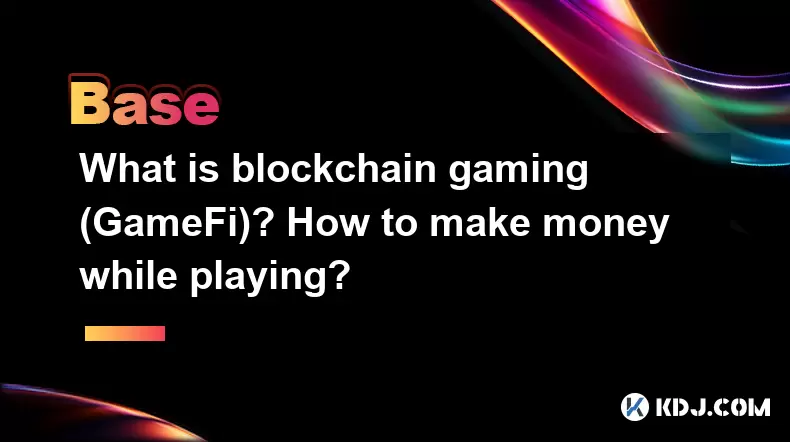
What is blockchain gaming (GameFi)? How to make money while playing?
Jun 20,2025 at 07:56am
Understanding Blockchain Gaming (GameFi)Blockchain gaming, often referred to as GameFi, is a fusion of blockchain technology and video games. It enables players to own in-game assets through non-fungible tokens (NFTs) and earn rewards via cryptocurrencies or token-based systems. Unlike traditional games where items are controlled by centralized develope...
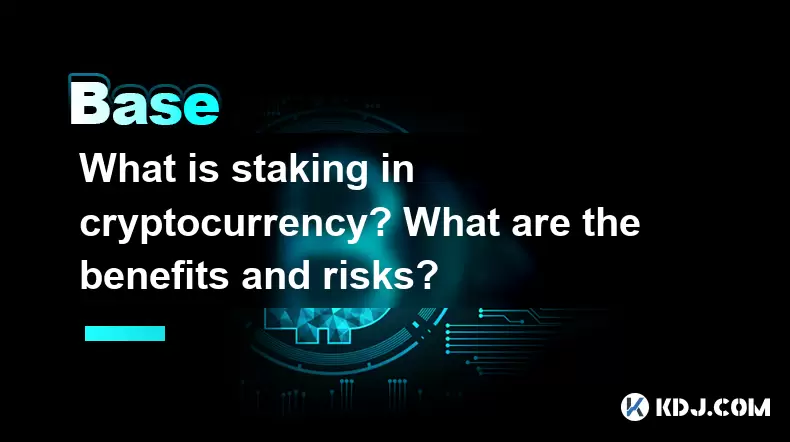
What is staking in cryptocurrency? What are the benefits and risks?
Jun 22,2025 at 10:01am
Understanding the Concept of Staking in CryptocurrencyStaking in cryptocurrency refers to the process of actively participating in transaction validation on a blockchain network that uses a Proof-of-Stake (PoS) consensus mechanism. Instead of miners competing to solve complex mathematical puzzles as in Proof-of-Work systems like Bitcoin, PoS blockchains...
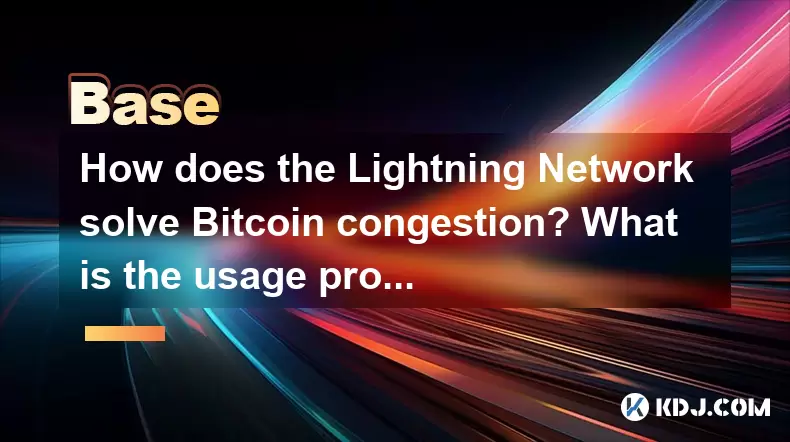
How does the Lightning Network solve Bitcoin congestion? What is the usage process?
Jun 23,2025 at 06:21pm
Understanding Bitcoin Network CongestionBitcoin, as a decentralized digital currency, operates on a blockchain that records every transaction in a public ledger. Each block has a limited size, typically 1 megabyte, which allows for only a certain number of transactions per second (TPS). When the number of transactions increases, the network becomes cong...

What is an oracle in blockchain? How to ensure data authenticity?
Jun 19,2025 at 08:49pm
Understanding the Role of an Oracle in BlockchainIn the context of blockchain technology, an oracle serves as a bridge between the blockchain and external data sources. While blockchains are inherently secure and decentralized, they cannot access real-world information on their own. Oracles enable smart contracts to interact with off-chain data such as ...

What are ICOs and IDOs in cryptocurrency? How to identify high-quality projects?
Jun 22,2025 at 11:49am
Understanding ICOs in CryptocurrencyInitial Coin Offerings (ICOs) are fundraising mechanisms used by cryptocurrency startups to raise capital for their projects. In an ICO, a company creates and sells its own tokens to investors in exchange for established cryptocurrencies like Bitcoin or Ethereum. The process typically involves the release of a whitepa...

What is the core concept of Web3.0? How is it different from Web2.0?
Jun 21,2025 at 05:56pm
Decentralization as the Foundation of Web3.0The core concept of Web3.0 revolves around decentralization, which fundamentally challenges the centralized architecture of Web2.0. In Web3.0, control and ownership are distributed across a network rather than being held by a central authority or corporation. This is achieved primarily through blockchain techn...

What is blockchain gaming (GameFi)? How to make money while playing?
Jun 20,2025 at 07:56am
Understanding Blockchain Gaming (GameFi)Blockchain gaming, often referred to as GameFi, is a fusion of blockchain technology and video games. It enables players to own in-game assets through non-fungible tokens (NFTs) and earn rewards via cryptocurrencies or token-based systems. Unlike traditional games where items are controlled by centralized develope...

What is staking in cryptocurrency? What are the benefits and risks?
Jun 22,2025 at 10:01am
Understanding the Concept of Staking in CryptocurrencyStaking in cryptocurrency refers to the process of actively participating in transaction validation on a blockchain network that uses a Proof-of-Stake (PoS) consensus mechanism. Instead of miners competing to solve complex mathematical puzzles as in Proof-of-Work systems like Bitcoin, PoS blockchains...

How does the Lightning Network solve Bitcoin congestion? What is the usage process?
Jun 23,2025 at 06:21pm
Understanding Bitcoin Network CongestionBitcoin, as a decentralized digital currency, operates on a blockchain that records every transaction in a public ledger. Each block has a limited size, typically 1 megabyte, which allows for only a certain number of transactions per second (TPS). When the number of transactions increases, the network becomes cong...
See all articles





















